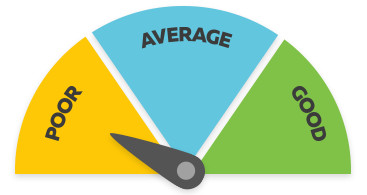Film and Video Editor
Ētita Kiriata/Ētita Ataata
Alternative titles for this job
Film and video editors assemble video, graphics, audio and text into a finished product for films, television programs, video productions or commercials.
Pay
Film and video editors earn an average of
$27 per hour
Source: Kantar Public, 2022
Job opportunities
Pay
Pay for film and video editors varies depending on their experience, the budget of the production they're working on, and how many hours they work. Most film and video editors are self-employed and work on contract.
- A survey for Creative New Zealand showed those involved in media production, including film and video editors, earned an average of $27.30 an hour.
- Some film and video editors can earn $100,000 or more a year.
Sources: careers.govt research, Kantar Public, 'Survey of Creative Professionals', November 2022.
- PAYE.net.nz website – use this calculator to convert pay and salary information
- Employment New Zealand website - information about minimum wage rates
(This information is a guide only. Find out more about the sources of our pay information)
What you will do
Film and video editors may do some or all of the following:
- arrange footage and match with sound files
- decide which shots are cut out or kept, in collaboration with the director and producer
- edit shots into a rough version
- colour correct the footage
- work on the soundtrack, adding any music or sound effects
- add graphics and titles
- supervise the final mix of images with sound
- view films or videos with clients, journalists, writers, directors and producers.
Skills and knowledge
Film and video editors need to have:
- editing skills and up-to-date knowledge of editing software and equipment
- the ability to creatively use video and music to tell a story
- skill in interpreting ideas
- knowledge of the production process
- knowledge of how visual and sound effects can enhance the film or video
- communication skills for working with clients, journalists, writers, producers and directors.
Working conditions
Film and video editors:
- often do shift work, and may have to work long and irregular hours during evenings and weekends to meet deadlines
- usually work in editing suites, television and film studios, film archives and libraries, or private or government production company offices
- may travel within New Zealand or overseas with a film crew
What's the job really like?

Jonno Woodford-Robinson
Film and video editor
Jonno Woodford-Robinson started out wanting to be a sound engineer, but it didn’t take long before he knew that film and video editing was the right career choice for him.
What does a typical day look like for you?
“During the shoot, I look at what I worked on the previous day, make any obvious changes, and then start cutting scenes from the latest rushes (footage). Hopefully I get most of that done by the end of the day.
“After the shoot, there's the director's cut, which changes from film to film depending on the director. Most directors stay for some of the edit and leave you to work on other scenes by yourself before checking back later. Then we’ll delve into it a bit more together.”
What’s one highlight from your career so far?
“Even though it was done in collaboration with other editors, I really enjoyed working on the feature film What We Do in the Shadows, and watching it with an audience at the Sundance Film Festival in Utah, USA. Hearing the cinema audience laugh at a comedy I've worked on is such a buzz!”
What advice would you give someone wanting to become an editor?
“Watch your favourite films several times in a day or a week and consider why the director and editor decided to cut to particular types of shots. Why might you understand what's going on in the film more clearly because of those decisions? It's also good to discover why an inferior film isn't so great – what did they do wrong?
“It’s also worth reading In the Blink of an Eye by Walter Murch, Screenwriting - The Sequence Approach by Paul Joseph Giuliano and On Directing Film by David Mamet.
“Also, offer to help out editorial crews on short films. This usually means little or no pay but it helps prove to people in the industry that you really want to be an editor.”
Video editor and motion designer video
Marcus Brill talks about working as a video editor and motion designer – 2.27 mins
Two, 1 for me, 1 for you. Here we go.
Editors and motion designers work in the post-production side of a production. So post-production basically just means everything that happens after the shoot day. So we've done a shoot, the footage comes in, and then the editors and motion designers cut up all the footage to make stories.
What gets me excited to go to work everyday? It's coming up with funny ideas and then making them and then having people laugh at them.
So the 3 main things I would do in my job is reading briefs, editing footage and animating graphics.
So this is a timeline and this is where I'm gonna build our sequence. This is all about footage. As you can see, you can quickly take all your footage, get it on a timeline, and start building a story out of it.
So being an editor is just one part of the process of making great videos. You need great producers, you need great directors, you need great camera people. Everyone here does a little bit of everything.
My path, I ended up going to university and studying a Bachelor of Arts and Design. The best thing I took away from university was the ability to generate ideas. Ideas that people can relate with; how to take an idea from a concept and make it into something.
So I've been editing for about 5 years. When I first started, I didn't know that much about motion graphics. I knew I enjoyed doing it and just through trial and error, I picked up a few skills. But as I got better and better, I realized how little I actually knew. The company I worked for put me on a course. It was sort of like a 10-week online course that sort of solidified all the little bits that I knew and it filled in all the gaps that I didn't know to give me a really solid foundation in using after effects and motion design.
I'd say the majority of editors in this industry are contractors or freelance, which means they can be working here 1 day or they can hustle and get their own work.
If you've ever heard of anything called imposter syndrome, being in a place where you're surrounded by super talented people can be quite off putting in a way because you're battling with yourself thinking, they're gonna figure out that I'm not a real editor, when in actual fact, a lot of those people are going through the same thing.
Honestly, I don't really think about my paycheck so much. The reward for me is when someone goes "Oh, that's cool, oh how'd you do that? That's awesome". I love making things, basically making things that people appreciate.
Entry requirements
There are no specific entry requirements to become a film and video editor. However, a relevant tertiary qualification in film and video editing may be useful.
Experience in the entertainment industry and proven ability are essential.
Secondary education
There are no specific secondary education requirements to become a film and video editor. However, media studies, digital technologies, design and visual communication, music, dance and drama, English and te reo Māori are useful.
Personal requirements
Film and video editors need to be:
- creative
- methodical and well organised, with an eye for detail
- good at problem solving
- reliable and responsible
- strong communicators
- able to work under pressure to meet deadlines.
Offer to help out editorial crews on short films. This usually means little or no pay but it helps prove to people in the industry that you really want to be an editor.

Jonno Woodford-Robinson
Film and video editor
Useful experience
Useful experience for film and video editors includes:
- making amateur films
- other television and film industry work
- training in the use of film editing equipment, especially computer programs such as Avid, Final Cut Pro and Premiere Pro.
Physical requirements
Film editors need to have normal colour vision to colour correct raw film and video footage.
Find out more about training
- Yoobee South Seas Film and Television School
- 0800 665 544 - www.yoobee.ac.nz
What are the chances of getting a job?
Chances of getting a job as a film and video editor are poor as the entertainment industry in New Zealand is small and there are many graduates with suitable qualifications.
Most people enter the industry through an entry-level role, such as assistant editor, to gain experience and get known.
According to the Census, 588 film and video editors worked in New Zealand in 2018.
Essential to build a portfolio
It is essential for film and video editors to demonstrate their experience and ability with a strong portfolio of previous work. Working on low-budget short film productions with other graduates is a good way to develop skills and build your portfolio.
Networking is key
The best way to enter the industry is to contact employers directly and widen your networks by attending industry functions and conferences.
Most film and television production work is centred in Auckland and Wellington.
Types of work varied
Film and video editors may work independently, or for production companies or advertising agencies. They may work on:
- music videos
- television commercials
- corporate videos
- television productions, including reality TV programmes, current affairs, sports and news
- online video clips
- short or feature films
- documentaries.
Sources
- Buckingham, D, general manager, Attitude Group, careers.govt.nz interview, March 2018.
- Elliott, G, producer/owner, Picture Talk Productions, careers.govt.nz interview, March 2018.
- Jackson, S, production manager, Great Southern Television, careers.govt.nz interview, April 2018.
- Roe, T, general manager, Fisheye Films, careers.govt.nz interview, March 2018.
- Stats NZ, '2018 Census Data', 2019.
(This information is a guide only. Find out more about the sources of our job opportunities information)
Progression and specialisations
Film and video editors may progress to become directors or media producers.
Film and video editors can specialise in these roles:
- Offline Editor
- Offline editors assemble recorded scenes to form a whole film or video.
- Online Editor
- Online editors improve the technical quality of the work by fine-tuning the colour grade, improving any special effects, and making sure the work is ready for broadcast.
Last updated 7 August 2024

